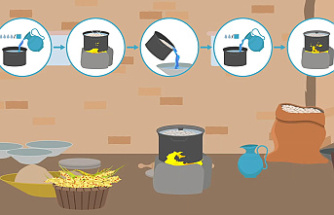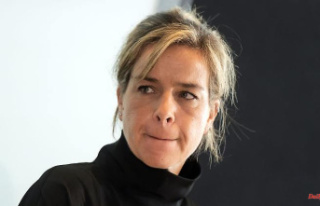For two weeks it was unclear whether the mysterious death of fish in the Oder would continue to the mouth of the river and beyond. The authorities have now given the all-clear. Swimming and fishing are possible again in the Oderhaff.
Schwerin/Ueckermünde (dpa/mv) - In the small lagoon at the mouth of the Oder, you can swim and fish again without hesitation. The state government of Mecklenburg-Western Pomerania lifted the precautionary bathing warning on Thursday and also withdrew the recommendation to refrain from fishing. The investigations by the responsible environmental and veterinary authorities had not revealed any conspicuous concentrations of pollutants, said Environment Minister Till Backhaus (SPD) in Schwerin.
The golden algae, the poison of which has been assumed to be a possible cause of the mass fish deaths in the Oder since the beginning of August, were also found in very low concentrations in the lagoon. "This means that the occurrence can be classified as non-hazardous," emphasized Backhaus. In addition, no dead fish or fish contaminated with pollutants were found in the small lagoon. Nevertheless, the body of water will continue to be monitored regularly and water samples will be taken from there.
As a reaction to the massive fish deaths in the Oder, on August 12, Germans issued warnings for swimming and fishing in the area around the mouth of the river. The use of water from the Small Lagoon for irrigation or for drinking water should also be avoided. According to Polish authorities, more than 200 tons of dead fish have now been recovered from the Oder.
"We are glad that the precautionary bathing warning can be lifted based on the findings from the sample evaluations by the Ministry of the Environment. The effects of the fish kill are therefore currently not a health risk for bathers in the region," said Health Minister Stefanie Drese (SPD).
The lifting of the warnings also brought relief to the tourism industry. "The industry can breathe a sigh of relief and is grateful that everything was done quickly and together to raise awareness," said the state's tourism officer, Tobias Woitendorf. The message is an important signal for tourism professionals in the region and for all guests to be able to put away possible concerns about a planned stay at the Szczecin Lagoon. The lagoon region and the island of Usedom are popular travel destinations, especially for Berliners.
According to Backhaus, the coincidence of several circumstances is probably the cause of the fish deaths in the Oder. These included the discharge of saline sewage into the Oder, which promoted algae growth, the currently low water level and the persistently high temperatures.












